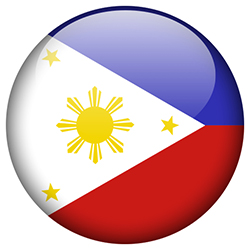Emerging Markets
EDITORIAL ANALYSIS: It's Not Surprising Wealth Managers Are Smiling On The Philippines

More evidence appears to validate decisions of some wealth managers to push into this country's market.
A plethora of international wealth management houses have pushed into the Philippines market in recent years, and new figures seem to underscore that this market merits attention. And maybe the case becomes even stronger, at least in the short run, while investors wait to see how the shock Malaysia election result works out.
A report by Philstar Global, a Philippines-publication, notes that a report by Knight Frank, the global property consultancy, estimates that the number of ultra-high net worth individuals in the country is expected to almost double over the coming five years, reaching 570 from 210 in 2017. Such a growth rate put the Asian country only second to that of China.
“The growth is driven mainly by a bullish real estate industry, strong macroeconomic fundamentals and will be further fueled by the influx of Chinese investments into the Philippines through the Belt & Road Initiative,” Knight Frank chairman and CEO Rick Santos is quoted as saying.
Such a rise in wealth – contrasting somewhat with a situation in which there remains considerable poverty and issues such as corruption, can explain why a number of private banks are knocking on the country’s door. In April Credit Suisse won regulatory clearance to set up a representative office in the Philippines for its wealth management arm. In 2017 it appointed Michael De Guzman as country manager for Philippines and head of Philippines coverage for investment banking and capital markets. Christian Senn, a 30-year veteran of Credit Suisse’s private banking business, was also named as market group head for the Philippines in the Asian-Pacific part of the private bank, based in Singapore.
In November last year, Bank J Safra Sarasin appointed Bellen Chang as a managing director for client advisory in its ultra-high net worth team, focusing on the Philippines. A number of the major banks have representative offices in the country, such as Singapore-headquartered DBS; Bank of Singapore and United Overseas Bank. HSBC Private Banking has an office in the country; Standard Chartered’s private bank also is present in the country - in fact StanChar claims to be the oldest international bank in the jurisdiction, with a history there dating back to 1872.
In late June last year Manulife, the financial services group, said its one of its business arms has got the green light to provide trust and fiduciary services business in the Philippines.
Malaysia’s change of government following last week’s elections hasn’t gone down particularly well with investors so far, concerned about pledges to axe a goods and services tax that might hit public coffers and affect its debt rating. So if investors and firms turn more cautious on Malaysia for a while, it might make the Philippines look an attractive alternative, even though the latter country has issues of its own.
Credit Suisse says its own research shows the country is expanding fast, creating wealth management opportunities. According to Credit Suisse Research Institute’s Global Wealth Report 2017, total household wealth in the Philippines grew by 10.7 per cent per annum since 2000 to reach $662 billion in 2017. Adults with net wealth of over $1 million also grew by over 13 per cent to reach 38,000, while the number of ultra-high net worth individuals with more than $50 million in net wealth also grew 13 per cent over the same period to over 400. These wealth segments are forecast to expand by more than 10 per cent a year in the next five years, the Institute has predicted.
The Institute also argues that as a high proportion of businesses are run by first- and second-generation families, there is a strong potential for wealth management services. The Philippines ranks 11th globally in terms of the number of family-owned businesses, and sixth within Asia Pacific ex-Japan in terms of average market capitalisation at $5.6 billion.
(Last year, this publication spoke to international law firm Baker McKenzie about the country and its wealth management dynamics.)
There remain challenges. Transparency International, a group tracking problems of bribery and corruption, gives the Philippines a low mark of 34, where 100 shows no problems and zero shows extreme difficulties. Out of 180 nations, it ranks at 111th place, with squeaky-clean New Zealand in first place, and war-ravaged Somalia at 180.
The country may be getting richer, but the route to lucrative business will not be simple.